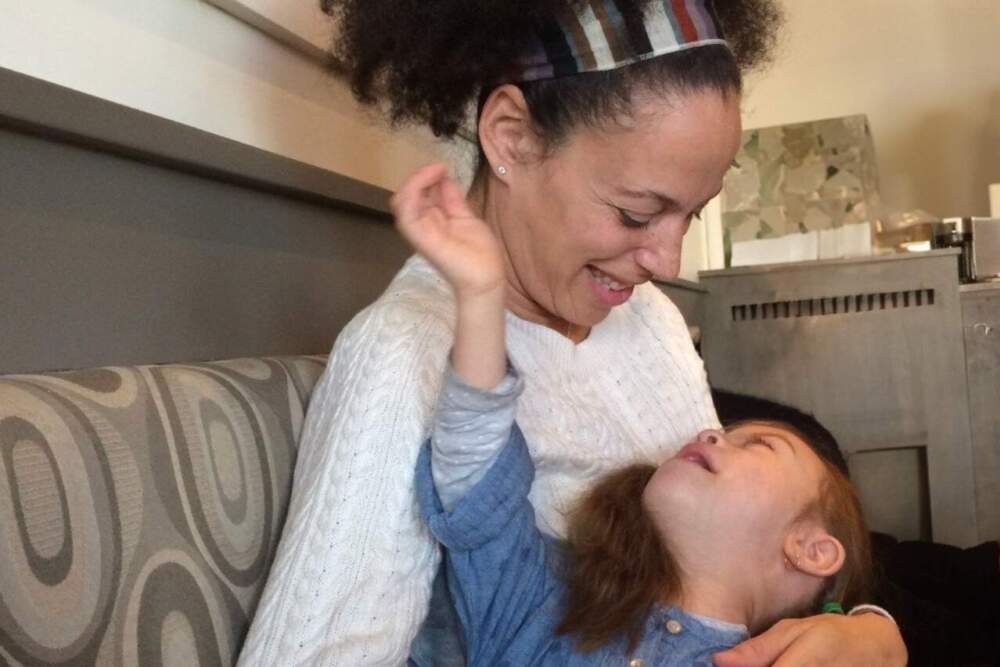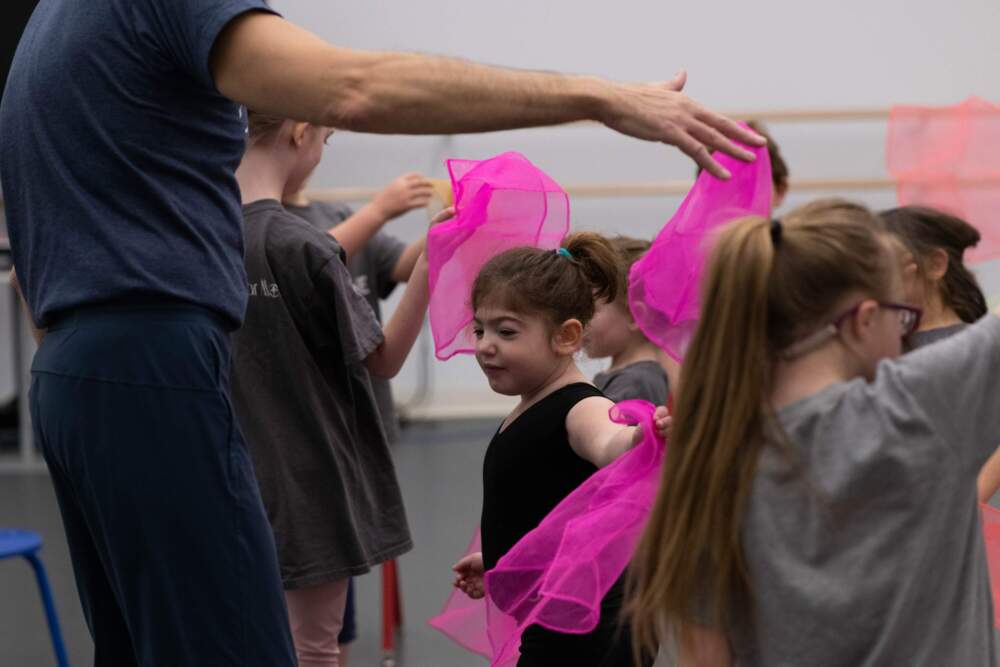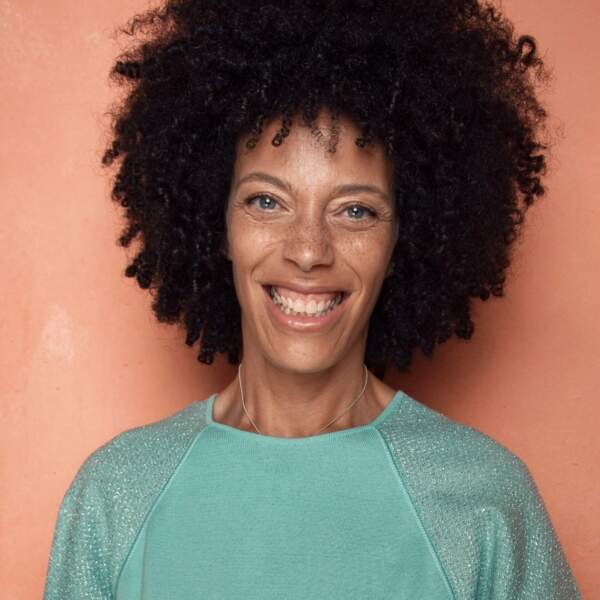Advertisement
Commentary
I didn’t want Aladdin to show me the world. My daughter had other ideas

When my daughter Lulu was a toddler, I dreaded “cry o’clock”. It happened every afternoon at around 4:00 pm, when it felt like the equivalent of three days had already passed, but there were still three more hours until another adult would be home. I’d cry and cry and cry while she napped.
I cried because I was tired in a way I didn't know you could be. I thought I knew tired working 80-hour weeks in the service industry. But this new exhaustion felt like it was tattooed on my soul. I cried because the enormous Ikea couch I snagged for half price to accommodate my family — who I thought would visit often to dote on the first and only grandchild — sat empty day after day. I cried because I thought this sweet, beautiful baby deserved a better mother than me.
Once Lulu woke up, I’d shock my tears away with icy cold water and start making dinner. I was happier when I cooked because this wonderfully unfussy baby of mine loved everything I made. She gobbled up ginger glazed salmon, happily dipped her purple heirloom carrots in carrot top pesto and crunched on crispy double-fried tostones.
On this particular day, we make it through cry o’clock and Lulu is maybe 20 feet away from me, spinning around and around in her tutu, listening to her music while I cook. The music is the playlist from her Boston Ballet Adaptive Dance class, a program for students who have Down syndrome. We played it a lot at home so the music would be familiar when she heard it in class. I don’t mind most of the music, but there was one song that I couldn’t bear, and it put me in the worst mood. It was from a musical and I hated musicals. All of them.
I’d heard terrifying tales of Raffi and The Wiggles and other insidious kids’ music creators infiltrating homes like audio kudzu, but I was confident I would never cave. I would never lose this part of my identity.
I loved almost every other kind of music. When I was growing up, my grandmother listened to the great Latin bands like Tito Puente and Machito. My mother listened to Fania All-Stars, Sly and the Family Stone and Santana. My dad listened to classical music, opera and what I used to call sad mountain music (I’ve since learned it’s called Appalachian bluegrass).
I didn’t like all of their music, but I loved that it was their music and that they loved it. I knew who was home and what they were doing by the music that was playing. If it was salsa, my mom was cooking, if it was funk, she was cleaning, if it was disco she was getting dressed to go dancing. And if opera or classical were playing, she wasn’t home: My dad was controlling the dial.
There was no kids’ music in our home growing up. Their music was our music.
I don't think kids’ music was a booming industry when I was little, but it sure was by the time I became a mother, and I wanted no part of it. Motherhood asks you to let go of so much: the way you work, the way you socialize, the way you identify yourself. I was not letting go of this part of me — not letting go of my music.
Advertisement
I’d heard terrifying tales of Raffi and The Wiggles and other insidious kids’ music creators infiltrating homes like audio kudzu, but I was confident I would never cave. I would never lose this part of my identity. My baby would listen to my music the way I listened to my parents’.
But then I learned about music therapy, music-based interventions provided by trained therapists, and the impact it can have on children with Down Syndrome. Music therapy can improve their communication and language skills, cognitive and social emotional skills, self-esteem and confidence.

If this music helps Lulu develop the skills she’ll need to do all the amazing things she’s going to want to do, I thought, if this music helps my daughter live up to her full potential, OK. Anything for her. I surrender. A dozen music therapy classes and countless playlists later, my Spotify Daily Mixes were unrecognizable. My music was almost completely cleansed from the algorithm. By the time Lulu was in dance classes at Boston Ballet, I’d listen to anything.
So I’m cooking, Lulu’s playlist is playing, she is spinning and the dreaded song comes on. “'Sing, Mama! Sing!" she yells. And to ward off my tears, to drown out my depression, to disregard my identity crisis, I do. I belt it out — louder than her, louder than the speaker. And on what feels like the 5,000th time this song has played on this single day alone, I hear the words. I finally hear the words:
I can show you the world
Shining, shimmering, splendid
Tell me, Princess
Now, when did you last let your heart decide?
I can open your eyes
Take you wonder by wonder
Over, sideways and under
On a magic carpet ride
A whole new world
A new fantastic point of view
No one to tell us no
Or where to go
Or say we're only dreaming
A whole new world
A dazzling place I never knew
But when I'm way up here
It's crystal clear
That now, I'm in a whole new world with you
And suddenly I am bawling. But this time it’s not because my husband is still 90 minutes away, or because I’m overtired. And certainly not because it’s a sappy Disney song. But because it’s finally crystal clear to me. This isn’t my old world. This isn’t my old music. This isn’t the old me. It’s a whole new world, where I am the me I was and the me I am now — a mother. A mother with a child who loves musicals.
That was almost a decade ago. I’ve found my music again: Monk and Mingus while I write, Thievery Corporation for gatherings, classic house to move, and Prince anytime. Lulu still loves her soundtracks like “Moana,” “Encanto” and “Vivo.” And, I love them, too.
We blast her music in the car on the way to school. I drop her off, and let her music continue to play as I drive, belting out Lin Manuel Miranda.
Remember the size of the world before
It was you and I, just you and I
And now the horizon holds so much more
